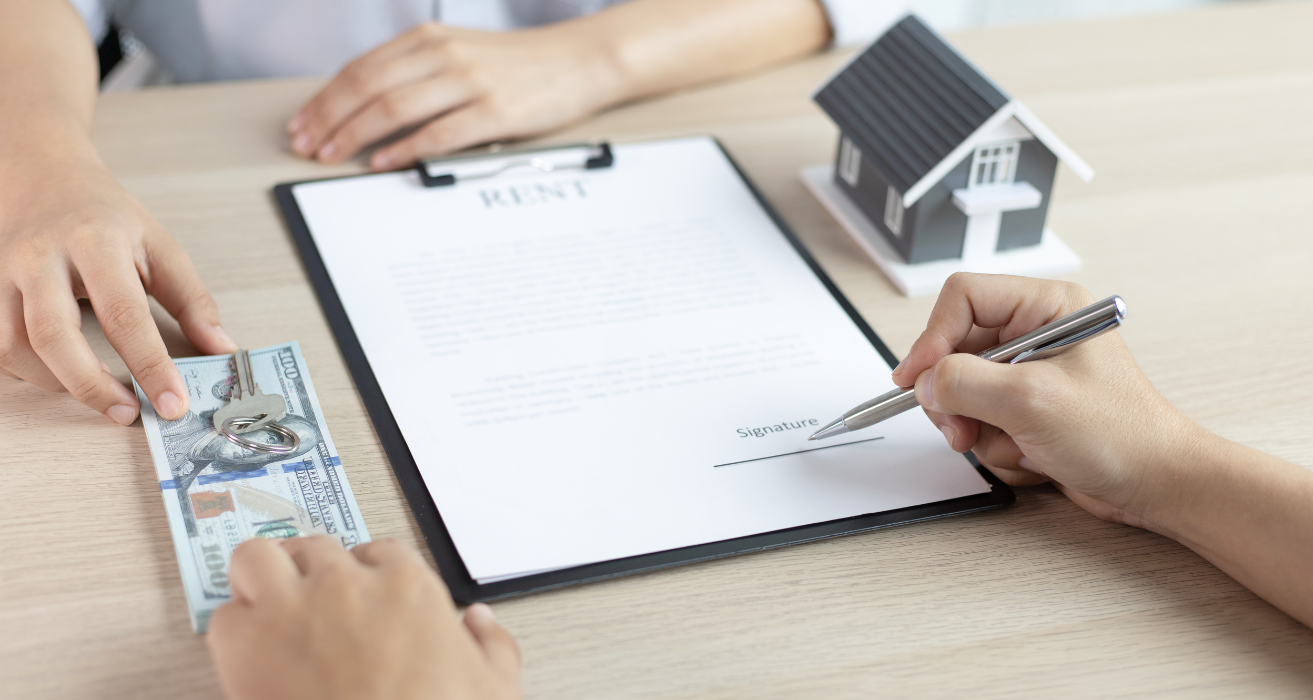Let’s face it, the homebuying process is confusing enough without running into legal jargon like "encumbrances" and "liens." But ignoring these terms could cost you big, either in delays, lost deals, or thousands in unexpected costs.
So here’s the deal: if you’re buying a home (or refinancing one), you need to understand how these two concepts affect your ownership rights, closing timeline, and even your loan eligibility. This guide will simplify it all.
An encumbrance is any legal restriction or claim on a property. A lien is a debt-based claim. You need to check for both before you close.
Key Takeaways:
- An encumbrance is a broad term that covers any claim against a property, including liens, easements, or deed restrictions.
- A lien is a specific type of encumbrance that involves a legal claim for debt repayment using the property as collateral.
- Knowing the difference can save you from costly surprises during the homebuying process.
- Always run a title search to uncover hidden issues before closing.
- Understanding these terms empowers smarter negotiations and smoother closings.
What Is an Encumbrance in Real Estate?
An encumbrance is any legal limitation on a property’s title that could interfere with its transfer or reduce its value. It doesn’t always involve debt. Think of it as a red flag, or at least a yellow one.
Common types of encumbrances include:
- Liens (e.g., mortgage, tax, or mechanic’s liens)
- Easements (a neighbor’s right to use your driveway)
- Covenants (rules from your HOA)
- Encroachments (someone’s fence built on your land)
Why it matters: If you're under contract to buy a home, encumbrances could delay your closing or even derail the deal. Plus, lenders won't clear a mortgage until these issues are resolved.
What Is a Lien?
A lien is a legal right a lender or creditor has in a property until a debt is paid.
Types of liens you might encounter:
- Mortgage Lien: Held by your lender until you pay off your home loan.
- Tax Lien: If back taxes are owed to the IRS or local government.
- Judgment Lien: From a court ruling in a legal case.
- Mechanic’s Lien: Filed by contractors who haven’t been paid for work.
Heads up:A lien can block a home sale. It must usually be paid off or otherwise cleared before closing.
Key Differences: Encumbrance vs Lien
| Feature | Encumbrance | Lien |
|---|
| Definition | Any legal claim on property | A debt-backed claim |
| Includes | Liens, easements, covenants | Mortgage, tax, mechanic’s liens |
| Impact | May limit use/sale | Must be cleared for sale |
| Is it debt-related? | Not always | Always |
| Found in Title Search? | Yes | Yes |
Pro Tip: All liens are encumbrances, but not all encumbrances are liens.
How to Protect Yourself as a Homebuyer?
To avoid buying a home with title baggage:
- Get a Professional Title Search: Most are done during escrow, but ask for a copy.
- Review the Title Report Carefully: Look for any listed liens or encumbrances.
- Use a Reputable Lender or Realtor: They’ll flag major issues before closing.
- Ask About Title Insurance: This covers you in case a missed lien pops up post-closing.
Need help breaking this down? Tools like Be My Neighbor Mortgage can guide you through the mortgage process, step by step.
Why This Matters for Mortgage Approval?
Lenders want a clear title. If there’s a lien or encumbrance, it could:
- Delay your loan approval
- Require seller action to resolve
- Lead to renegotiation or contract cancellation
Working with a platform like realpha ensures you know what’s on the title before you even get to underwriting.
Conclusion: Clear Title = Smart Purchase
Buying a home is one of the biggest investments you’ll ever make. Don’t let legal surprises derail your closing. Understanding encumbrances and liens helps you stay in control.
If you're shopping for a home, consider using realpha, a commission-free homebuying platform that prioritizes transparency and control. And for step-by-step mortgage help, Be My Neighbor Mortgage is a trusted partner in the process (NMLS #1743790).
Frequently Asked Questions (FAQs)
Are all liens bad?
Not necessarily. A mortgage lien is standard when you take out a home loan. It only becomes a problem if it’s unpaid or not disclosed.
Can I buy a home that has a lien?
Technically, yes. But the lien must be cleared before the sale can close.
What does it mean when a title is "clouded"?
A clouded title has legal issues (like liens or ownership disputes) that make the ownership unclear.
How do I remove an encumbrance?
It depends. Liens can be paid off; easements require legal negotiations. Always consult a title company or real estate attorney.
Do encumbrances affect property value?
Yes. Some, like easements or deed restrictions, can limit future use or resale value.
Compliance Disclosures:
- NMLS #1743790 (Be My Neighbor Mortgage)
- This content is for educational purposes only and does not constitute legal or financial advice.
- Always consult with a licensed mortgage professional before making any financial decisions.
- realpha and Be My Neighbor Mortgage maintain a business partnership but operate independently.
- Mortgage eligibility, rates, and terms are subject to underwriting approval.
- All loans are subject to credit approval.
- Equal Housing Lender.






.png)
.png)
.png)
.png)
.png)
.png)








.jpg)
.jpg)
.jpg)
.jpg)
.jpg)
.jpg)
.jpg)
.jpg)
.jpg)
.png)








.png)
.jpg)
.jpg)
%20(1).jpg)
.jpg)
.jpg)

.jpg)
.jpg)




-min.png)
.avif)
-min.png)
-min.png)
.jpg)
.avif)

-min.png)

.avif)
.avif)





-min.png)
-min.png)
-min.png)

-min.png)

-min-p-1080%20(1)%20(1).jpg)
-min.png)
-min.png)
.avif)
.avif)
.avif)
.avif)
.avif)
.avif)
.avif)
.avif)
.avif)
.avif)
.avif)
.avif)
.avif)
.avif)
.avif)

.avif)
.avif)
.avif)
.avif)
.avif)
.avif)
.avif)
.avif)
.avif)
.avif)



